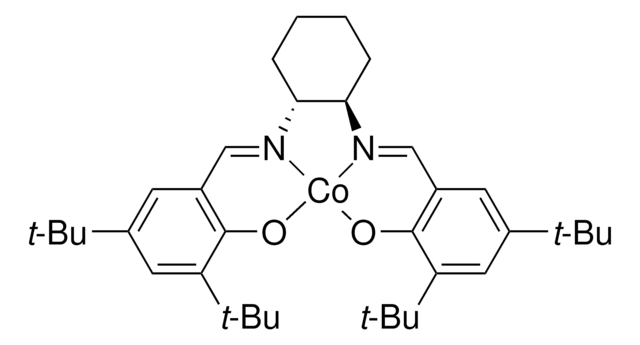520918
Gold(III) chloride trihydrate
≥99.9% trace metals basis
Synonym(s):
Hydrogen tetrachloroaurate(III), Tetrachloroauric(III) acid
About This Item
Recommended Products
Assay
≥99.9% trace metals basis
form
crystals and lumps
composition
Au, 48.5-50.25%
packaging
glass bottle of 1 g
glass bottle of 25 g
glass bottle of 5 g
impurities
≤1000.0 ppm Trace Metal Analysis
SMILES string
Cl[H].[H]O[H].[H]O[H].[H]O[H].Cl[Au](Cl)Cl
InChI
1S/Au.4ClH.3H2O/h;4*1H;3*1H2/q+3;;;;;;;/p-3
InChI key
XYYVDQWGDNRQDA-UHFFFAOYSA-K
Looking for similar products? Visit Product Comparison Guide
General description
Application
Signal Word
Danger
Hazard Statements
Precautionary Statements
Hazard Classifications
Acute Tox. 4 Oral - Aquatic Chronic 2 - Eye Dam. 1 - Met. Corr. 1 - Skin Corr. 1B - STOT RE 2 Oral
Target Organs
Kidney
Storage Class Code
8B - Non-combustible corrosive hazardous materials
WGK
WGK 3
Flash Point(F)
Not applicable
Flash Point(C)
Not applicable
Personal Protective Equipment
Choose from one of the most recent versions:
Already Own This Product?
Find documentation for the products that you have recently purchased in the Document Library.
Customers Also Viewed
Articles
Plasmonic nanoparticles have unique optical properties that can be tailored to suit a variety of applications in the biotechnology1–8 and electronics9–16 industries.
Our team of scientists has experience in all areas of research including Life Science, Material Science, Chemical Synthesis, Chromatography, Analytical and many others.
Contact Technical Service
















